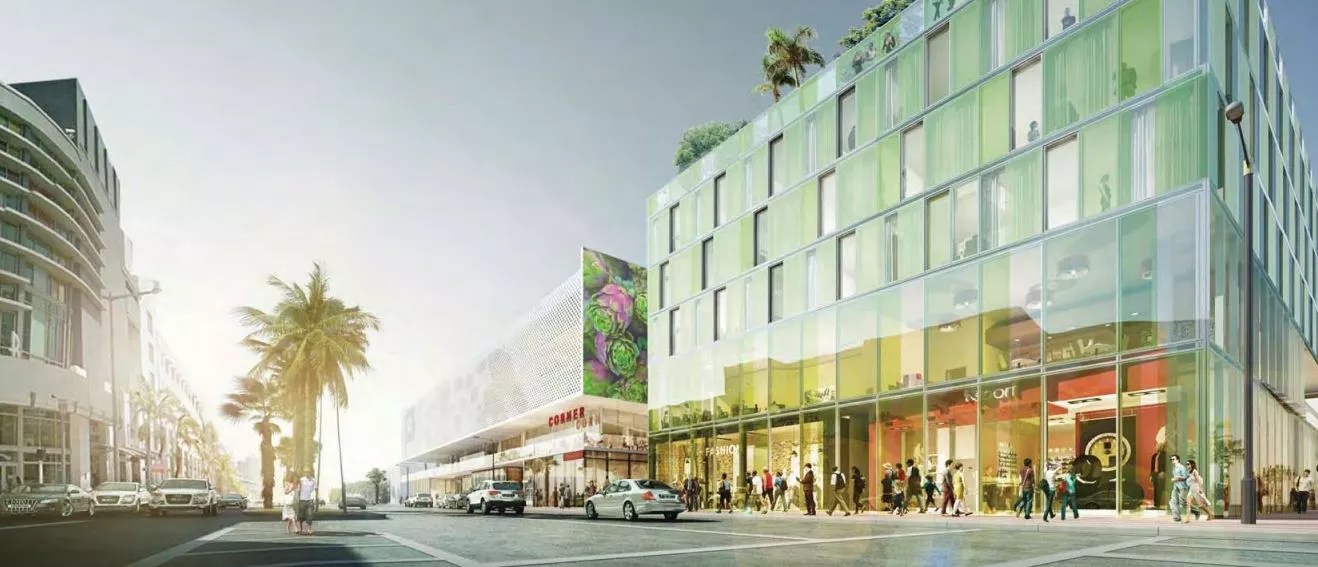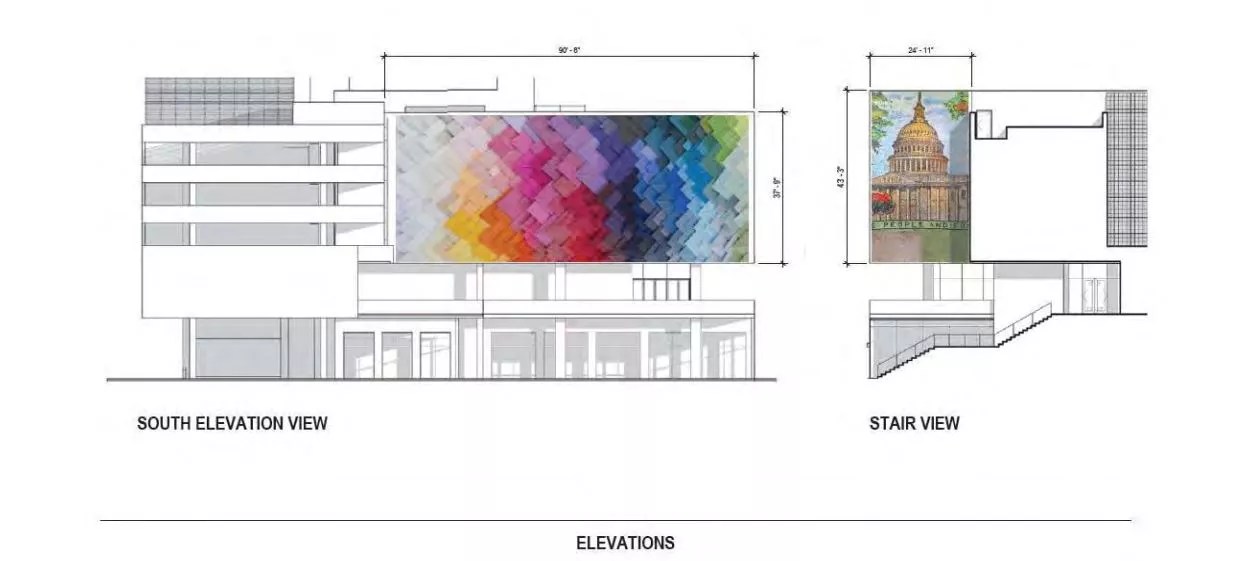
Perkins + Will

Audio By Carbonatix
Plenty of South Florida walls are covered with eye-catching murals, but the developers behind one Miami Beach project have another idea for filling the blank space: ginormous LED screens – one of them nearly 91 feet wide and 38 feet tall.
The two screens proposed for “1212 Lincoln Road,” a Crescent Heights mixed-use development that will span a block of Alton Road from 16th Street to Lincoln Road, would be on 24/7, though planners insist it wouldn’t be used for advertising. Instead, they envision artistic designs and photos of nature and Miami Beach architecture flashing on the boards. They’d also show images of the historic mural on a Wells Fargo building that’s being demolished as part of the project.
In an application that the city’s Design Review Board will consider later today, a lawyer for the developers calls the screens “innovative graphic displays.” Some locals, however, say giant LED screens are not what Miami Beach needs.
“They’re trying to turn Alton Road into Times Square,” says Daniel Ciraldo, executive director of the Miami Design Preservation League. “There’s a place for large flashing images; it’s not there.”

The location of the development
Perkins + Will
The development has been in the works since 2014. Designed by the architecture firm Perkins + Will, it’s set to include a five-story building with retail, parking, and a CitizenM hotel. CitizenM, a Netherlands-based “affordable luxury” chain that recently signed on to the project, offers tiny, amenity-packed rooms; the developers are requesting a variance for rooms as small as 186 square feet.
Originally, the developers planned to display “information,” “holiday,” “artist,” and “graphic” images on the screens. That idea was presented to the Design Review Board in October 2016 but was then deferred. Soon after, the city modified its sign ordinance to allow electronic murals, provided there are no more than two per property and they do not face a residential district. The giant screens at 1212 Lincoln Road would be the city’s first since changing its rules.
Crescent Heights’ application says the images displayed on the screens would be noncommercial, but Ciraldo is skeptical that the boards wouldn’t be used for advertising.
“It’s a slippery slope, because they say that now, and then maybe once it’s built, things might change,” he says.

A graphic showing the scale of the LED screens
Perkins + Will
In an analysis of the proposal, Design Review Board members wrote that they generally had no objections to the installation of large LED screens, which they called “artistic super graphics,” especially when they “activate otherwise blank, featureless walls.” But they recommend the application be continued to a future meeting so it can be reviewed further.
They want to be able to limit the hours the screens are illuminated, though their biggest concern is with the way the images will be displayed. The developers, they wrote, are “missing an opportunity” to seamlessly blend the screens into the skin of the architecture. Instead of using LED boards, the developers should consider stainless-steel mesh, like the screen on American Airlines Arena, they say.
Exploring “more advanced display options” could help the development “truly become a visual centerpiece,” they wrote.
Ciraldo doesn’t see it that way.
“It just seems like it would be more of a blight to the neighborhood,” he says, “not something that would add positively to the neighborhood.”